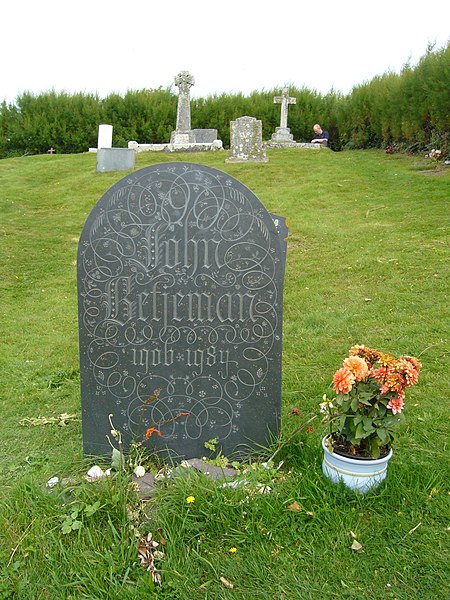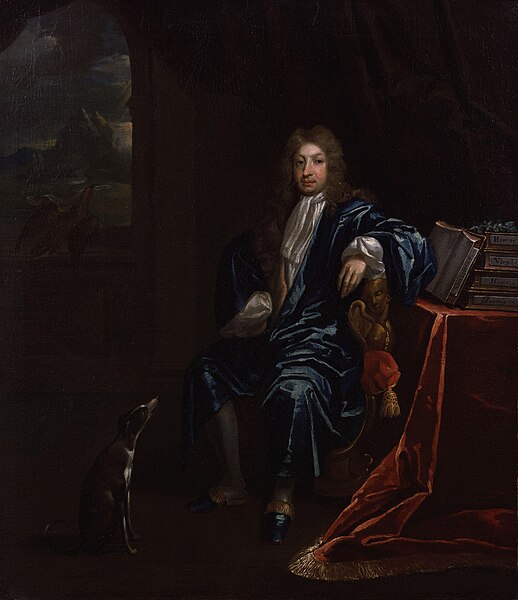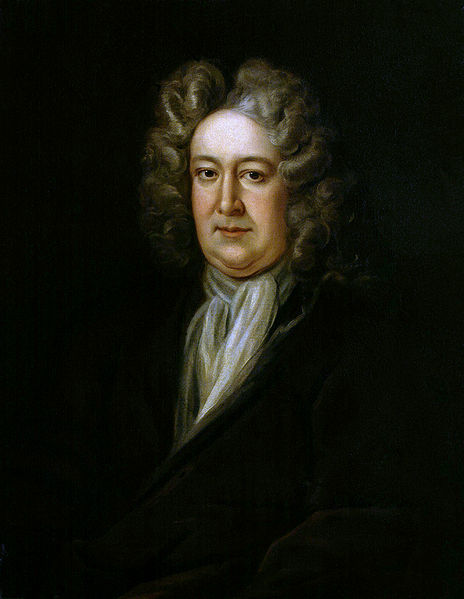Sir John Betjeman, was an English poet, writer, and broadcaster. He was Poet Laureate from 1972 until his death. He was a founding member of The Victorian Society and a passionate defender of Victorian architecture, helping to save St Pancras railway station from demolition. He began his career as a journalist and ended it as one of the most popular British Poets Laureate and a much-loved figure on British television.
Betjeman in 1961
The John Betjeman Centre Memorabilia Room showing the office from his home in Trebetherick
Betjeman's house on Cloth Fair in the City of London, marked with a blue plaque (August 2007)
John Betjeman's gravestone by Simon Verity
Poet Laureate of the United Kingdom
The British Poet Laureate is an honorary position appointed by the monarch of the United Kingdom, currently on the advice of the prime minister. The role does not entail any specific duties, but there is an expectation that the holder will write verse for significant national occasions. The origins of the laureateship date back to 1616 when a pension was provided to Ben Jonson, but the first official holder of the position was John Dryden, appointed in 1668 by Charles II. On the death of Alfred, Lord Tennyson, who held the post between November 1850 and October 1892, there was a break of four years as a mark of respect; Tennyson's laureate poems "Ode on the Death of the Duke of Wellington" and "The Charge of the Light Brigade" were particularly cherished by the Victorian public. Three poets, Thomas Gray, Samuel Rogers and Walter Scott, turned down the laureateship. Historically appointed for an unfixed term and typically held for life, since 1999 the position has been for a term of ten years. The holder of the position as at 2024 is Simon Armitage who succeeded Carol Ann Duffy in May 2019 after 10 years in office.

John Dryden, the first Poet Laureate
Image: John Dryden, Poet and Playwright (3959224502)
Image: Thomas Shadwell from NPG
Image: Nicholas Rowe from NPG








